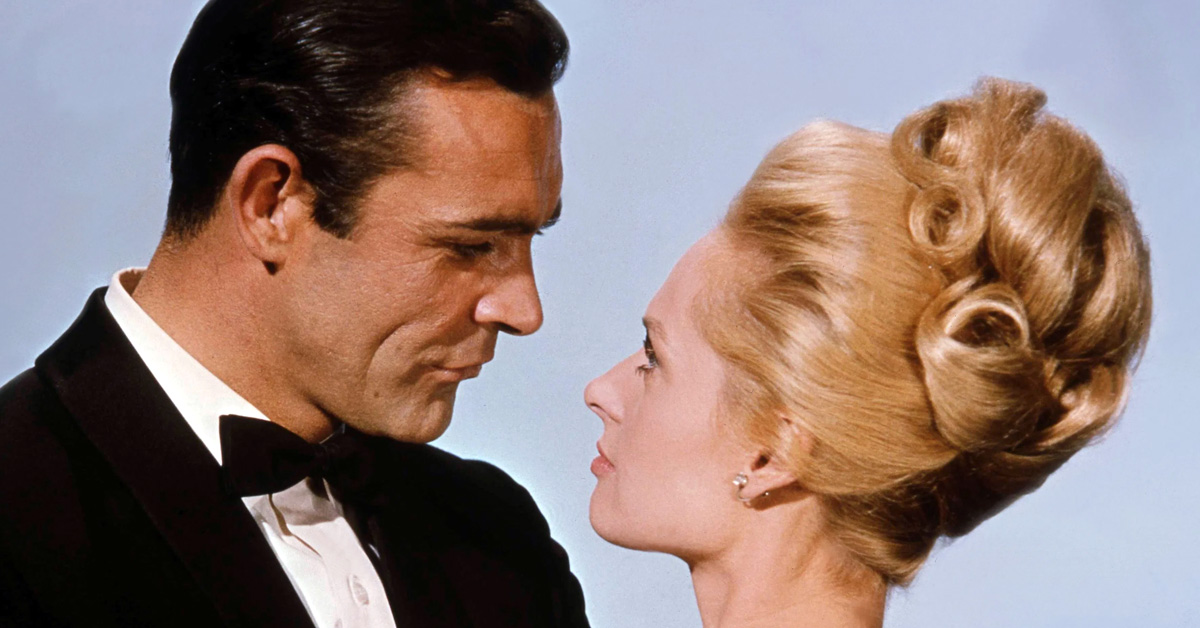Marnie | 1964
Updated April 2, 2021
Critical Consensus
Dave Kehr | Chicago Reader
Jeffrey M. Anderson | Combustible Celluloid
Marjorie Baumgarten | The Austin Chronicle
Fernando F. Croce | Slant Magazine
Richard Brody | The New Yorker
Kim Newman | Empire
David Parkinson | RadioTimes
Shikhar Verma | High on Films
JP Roscoe | Basement Rejects
Patricia Smagge | Cinemagazine
Andy Webb | The Movie Scene
Eugene Archer | The New York Times
Josh Larsen | Larsen on Film
Keith Phipps | A.V. Club
Richard Cross | 20/20 Movie Reviews
Jeffrey M. Anderson | Combustible Celluloid
Marjorie Baumgarten | The Austin Chronicle
Fernando F. Croce | Slant Magazine
Richard Brody | The New Yorker
Kim Newman | Empire
David Parkinson | RadioTimes
Shikhar Verma | High on Films
JP Roscoe | Basement Rejects
Patricia Smagge | Cinemagazine
Andy Webb | The Movie Scene
Eugene Archer | The New York Times
Josh Larsen | Larsen on Film
Keith Phipps | A.V. Club
Richard Cross | 20/20 Movie Reviews
Fix a critic’s review
Summary & Info
A woman (Tippi Hedren) makes a habit of getting hired, stealing money from the company safe, and fleeing. After her last theft, her boss (Sean Connery) blackmails her into marrying him, realizes she suffers from nightmares and the color red can trigger extreme reactions, and resolves to uncover her childhood secrets. Cast: Louise Latham and Martin Gabel. Director: Alfred Hitchcock. [2:11 – PG]
Dueling Critics

“Universally despised on its first release, Marnie (1964) remains one of Alfred Hitchcock’s greatest and darkest achievements…Hitchcock employs powerful masses, blank colors, and studiously unreal, spatially distorted settings. Theme and technique meet on the highest level of film art.”

“All winning runs must come to an end sooner or later, and after making four bona-fide classics in a row (Vertigo, North by Northwest, Psycho and The Birds) Alfred Hitchcock finally struck out with his psychological thriller…Hitchcock demonstrated that he hadn’t lost his touch even though this movie comes nowhere near his best.”
Video
Marnie | 1964
Updated April 2, 2021
Critical Consensus
Dave Kehr | Chicago Reader
Jeffrey M. Anderson | Combustible Celluloid
Marjorie Baumgarten | The Austin Chronicle
Fernando F. Croce | Slant Magazine
Richard Brody | The New Yorker
Kim Newman | Empire
David Parkinson | RadioTimes
Shikhar Verma | High on Films
JP Roscoe | Basement Rejects
Patricia Smagge | Cinemagazine
Andy Webb | The Movie Scene
Eugene Archer | The New York Times
Josh Larsen | Larsen on Film
Keith Phipps | A.V. Club
Richard Cross | 20/20 Movie Reviews
Jeffrey M. Anderson | Combustible Celluloid
Marjorie Baumgarten | The Austin Chronicle
Fernando F. Croce | Slant Magazine
Richard Brody | The New Yorker
Kim Newman | Empire
David Parkinson | RadioTimes
Shikhar Verma | High on Films
JP Roscoe | Basement Rejects
Patricia Smagge | Cinemagazine
Andy Webb | The Movie Scene
Eugene Archer | The New York Times
Josh Larsen | Larsen on Film
Keith Phipps | A.V. Club
Richard Cross | 20/20 Movie Reviews
Fix a critic’s review
Dueling Critics
 “Universally despised on its first release, Marnie (1964) remains one of Alfred Hitchcock’s greatest and darkest achievements…Hitchcock employs powerful masses, blank colors, and studiously unreal, spatially distorted settings. Theme and technique meet on the highest level of film art.”
“Universally despised on its first release, Marnie (1964) remains one of Alfred Hitchcock’s greatest and darkest achievements…Hitchcock employs powerful masses, blank colors, and studiously unreal, spatially distorted settings. Theme and technique meet on the highest level of film art.” “All winning runs must come to an end sooner or later, and after making four bona-fide classics in a row (Vertigo, North by Northwest, Psycho and The Birds) Alfred Hitchcock finally struck out with his psychological thriller…Hitchcock demonstrated that he hadn’t lost his touch even though this movie comes nowhere near his best.”
“All winning runs must come to an end sooner or later, and after making four bona-fide classics in a row (Vertigo, North by Northwest, Psycho and The Birds) Alfred Hitchcock finally struck out with his psychological thriller…Hitchcock demonstrated that he hadn’t lost his touch even though this movie comes nowhere near his best.”Summary & Info

A woman (Tippi Hedren) makes a habit of getting hired, stealing money from the company safe, and fleeing. After her last theft, her boss (Sean Connery) blackmails her into marrying him, realizes she suffers from nightmares and the color red can trigger extreme reactions, and resolves to uncover her childhood secrets. Cast: Louise Latham and Martin Gabel. Director: Alfred Hitchcock. [2:11 – PG]
